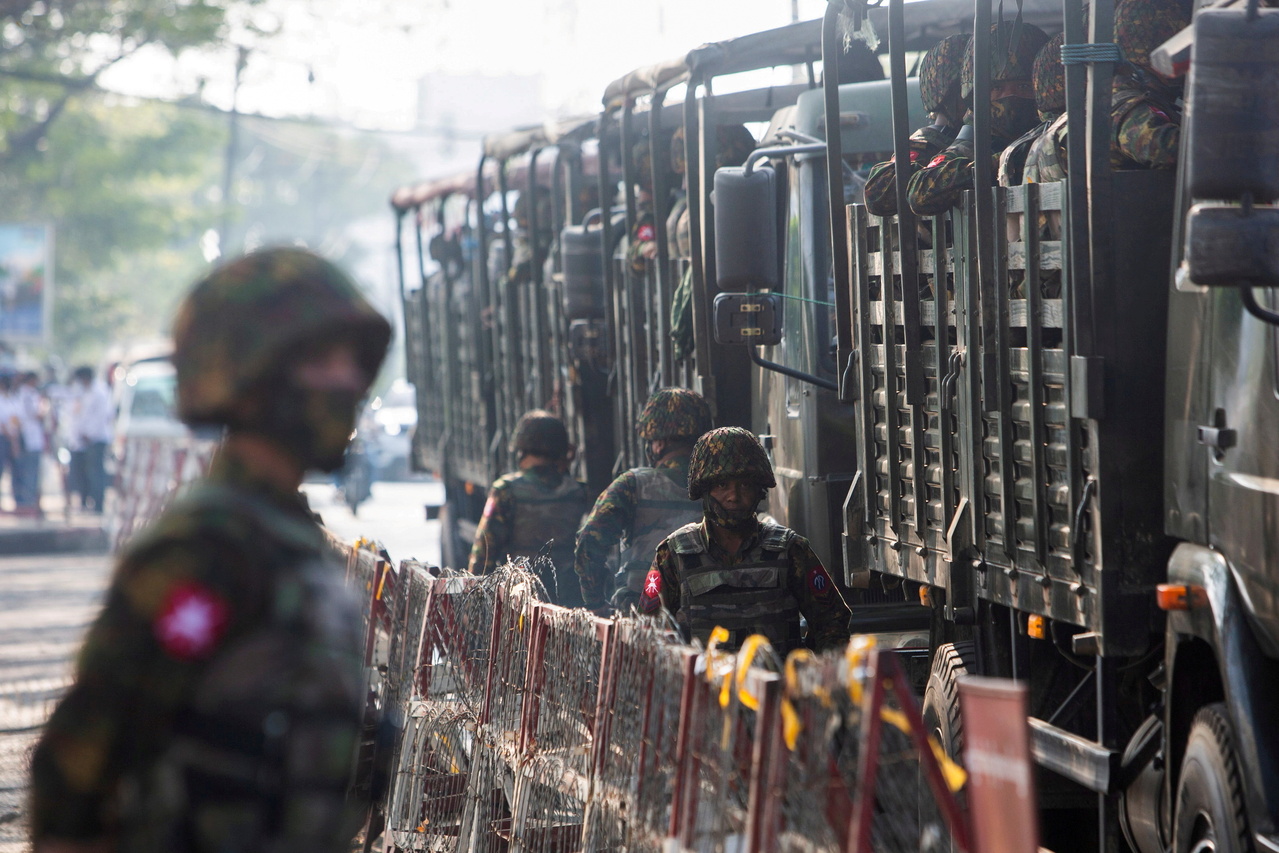Myanmar's shadow government calls out 'illegal investments' in the country
Sign up now: Get insights on Asia's fast-moving developments

Myanmar's National Unity Government named eight companies that allegedly had dealt with the junta-controlled Myanmar Investment Commission.
PHOTO: REUTERS
Follow topic:
BANGKOK - Myanmar's shadow government this week named eight companies for "undertaking illegal investments by seeking permits and endorsements" from a junta-controlled entity, highlighting the quandary faced by businesses amid the tussle over who is the rightful authority in the country.
In a statement dated Monday (Aug 30) and circulated online the next day, the National Unity Government (NUG) named companies said to have originated from Singapore, Thailand, China and Japan, as well as Myanmar, which had allegedly dealt with the Myanmar Investment Commission now controlled by the military junta.
"The indiscriminate issuance of investment permits and endorsements by the Myanmar Investment Commission under the control of the illegal military council runs counter to the tenets of federal democracy to which people of Myanmar aspire," wrote NUG minister for planning, finance and investment Tin Tun Naing. "Such actions shall not be tolerated."
The NUG, which comprises lawmakers ousted by the Feb 1 military coup as well as their allies, maintains that any investment agreements and approvals made by the junta after the putsch will not be recognised.
It demanded that the named companies "immediately and unconditionally" suspend their "illegal investment activities" and further threatened allegedly errant listed companies with prosecution.
The biggest project on the list is a US$2.5 billion (S$3.36 billion) 1,390MW power plant being developed by Mee Lin Gyaing Electric Power, which the NUG classifies as a joint venture involving a firm domiciled in the British Virgin Islands.
Earlier press reports stated it was backed by Myanmar's Supreme Group and China's Yunnan Provincial Energy Investment Group, Union Resources and Engineering, and Zhefu Holding Group.
The project in the Ayeyarwaddy region had been waiting for government approval before the coup. It was endorsed by the military regime in May.
Another investment called out by the NUG was a US$37 million glass bottle production project undertaken by a firm called Myanmar Golden Eagle, which is linked to Thai listed drinks manufacturer Osotspa.
Also highlighted was a US$22 million, 30MW solar power plant being developed by Clean Power Energy, a company the NUG listed as a joint venture involving a firm from Singapore.
A search on the online company directory maintained by Myanmar's Directorate of Investment and Company Administration, however, found Clean Power Energy listed as a local company headed by five Myanmar nationals and one China national.
The NUG did not respond to a request for comment from The Straits Times.
For months now, the NUG has been vying with the military junta for international recognition as the legitimate government of Myanmar.
The military regime headed by Senior General Min Aung Hlaing claims that the November 2020 election that swept the National League for Democracy party to its second victory was fraudulent.
He has promised that the current state of emergency will end by August 2023, and that fresh elections will be held to install a new government.
Locals have responded to the coup by shunning the junta's administrators, withholding electricity payments, and shaming companies that do business deals with military conglomerates.
Major investors have also come under pressure to withhold taxes or revenue from state entities now under the control of the junta.
Amid the deteriorating business and security environment, Norwegian telecommunications firm Telenor announced a fire sale of its Myanmar operations to a Lebanese company in July.
The World Bank expects Myanmar's economy to shrink 18 per cent in the year ending September.

